An Old Turkish Soldier Described with All Lines of the Korean War
A lot of people lost their lives in the hot battle of cold war that started in 1950 and lasted for 3 years. You will read this battle that smells of blood and gunpowder of a Turkish soldier who joined the battle beyond the ocean while the cold face of war survived to the last of the local people.
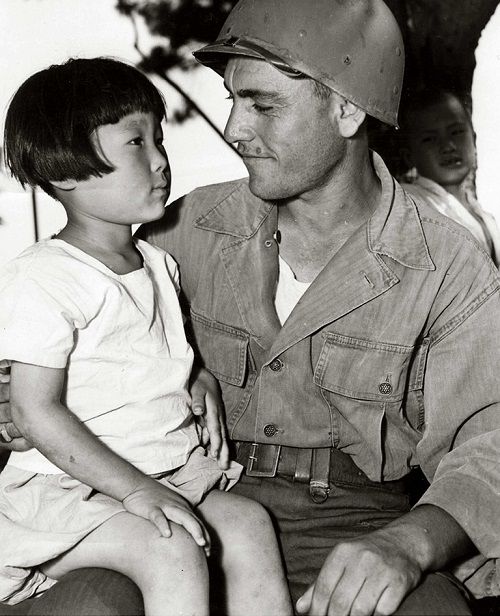
When North Korea attacked South Korea on June 25, 1950, the whole world, especially the United States (USA), got up. Because this meant that a small nation in a remote corner of Asia was far beyond the fighting. Behind North Korea was Soviet Russia and Communist China.
The event was announced as the war announcement of the East, in other words, the capitalism of the communism. At the initiative of the United States, the United Nations (UN) Army was established and the military of 16 western nations was in South Korea, beside South Korea.
That's how the Korean War, which resulted in the death, injury, physical and psychological disability of millions of people, began. And Ibrahim Artuc, a retired soldier himself, described the lives of Turkish soldiers in Korea in his book "Mehmetçik in the Korean War".
The decision to send troops was not consulted by the Assembly
What happened to the Korean War? The answers to this question are given in the book of Artuç:
Turkey participated in the Korean War by complying with the UN resolutions. Turkey was the first country after the United States declared that she sent the Kore'yeask. Although this decision was taken by the government only after consultation with the Parliament, it was not discussed too much and the order of the General Staff on August 3, 1950 began the establishment of a brigade to go to Korea.
The men who will go to war will be chosen from the births of 1929 and more volunteers. Volunteers would also be preferred from officers and non-commissioned officers. It was decided to establish a brigade of 5 brats.
Turkey during the Korean War, the new circuit was represented by a total of 10 brigades instead of staying one year in the region. The 1st, 2nd and 3rd brigades were actively fighting.
How do they go?
The brigade traveled to Egypt in the last week of September, 1950. In the brigade, there were a great number of soldiers who had never been aboard, even unseen soldiers. For them, the vast waters of the Mediterranean, hele hele, with all the comforts of these huge ships was a source of excitement.
According to the bread of the Americans
The ships had all the comforts. The meals were very good and plentiful, but the bread was only two thin slices. The Turkish soldiers, who were accustomed to eating too much bread, were not satisfied with how much they were eating. The flour flour was tried to be removed only with the potatoes added to the bread minus menu because the man's head was based on two slices, that is, American eating habits. In the first place called Ceylon, the flour was ordered. However, as these flour also survived, the bread stall lasted until Korea.
The shower and toilet was the problem
Another problem that Turkish soldiers experienced on board was the use of appliances such as American toilets, reservoirs, showers and washbasins that they were not accustomed to. In this regard, the erosion was overcome by giving theoretical and practical lessons.
Training on board
The average long journey of 22 days was assessed by theoretical and armed training. The soldiers were given information about the Korean and Korean wars, different lessons of war were taught, and American M1 infantry rifles were shot with them. The shooting training, which could not be completed in Etimesgut due to the late arrival of guns, was carried on board.
Band in Puson harbor
Soldiers who participated in the Korean War, the last point they came with the ship was Puson Harbor. Turkish soldiers set out on the pier on 18-19 and 20 October. In the abandonment of the vessels, separate ceremonies were made at the exit to the scarlet, mutual speeches were spoken, gifts were taken and given.
Other than American military officers and officers of the Turkish Liaison Group formed at the headquarters of the General Mac Arthur headquarters in Tokyo, the Puson Governor, Mayor, and other Korean students, who accompanied the United Nations, Korean and Turkish flags, and American and Korean bands .
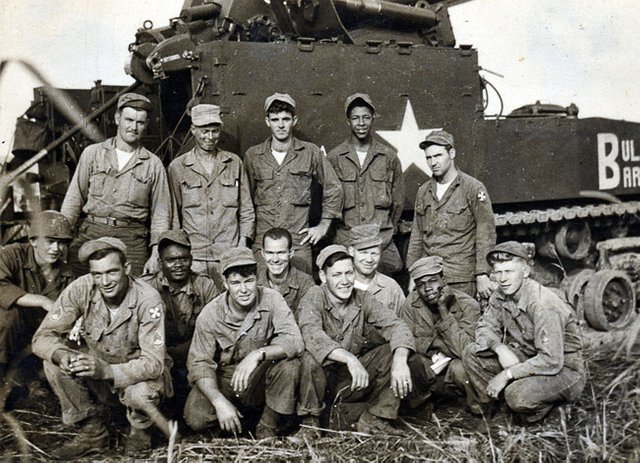
Turkish military banquet
The incoming convicts were taken to the train station by means of the limousines, and from there trains were sent to the city of Taegu. From the soldiers point of view, the most interesting thing about this train journey was the American set. There are no provisions in three lunch boxes: 6 canned pork loin, meat with dried red bean jam, chicken rice pilaf or pasta, compote, jam and half salted half biscuits, tea, coffee, sugar, 3 packets of cigarettes , alcohol, chocolate, confectionery, chewing gum, soap, water-cleaning pills, plastic spoons and forks, cleaning papers and a spirits bottle made of spirits, water and cotton to warm a cannery. I mean, everything from sweet to salty. For Mehmetçik, this was a kingly meal, or rather a palace dinner.
The pork problem was
However, in the meantime, the presence of pork in some canvases made Turkish soldiers worried. Shortly, the soldiers learned to distinguish the "Bacon" pork canned from the others, and began eating them and giving them to the poor Koreans they saw along the way. The Korean peasantly welcomed this meal, which was never expected.
Novice drivers are in danger
Teagu also started training. The real challenge was in driver education. Because, 98 percent of them were raised in the continental driver training center, they were not able to find enough training opportunities in the brigade. There have been a lot of accidents during Puson-Taegu ball, weapon and vehicle transport; accidents wounded and wounded in the tools. In addition, two Korean children were killed and three Korean civilians were injured in a traffic accident caused by Turkish troops in Taegu. In the memoirs of Colonel Celal Dogan, he writes, "10 percent of the casualties in Korea have come from the overthrow of our drivers."
Attention to Turkish drivers
In those days, the American army newspaper named Star in Tokyo would write for Turkish drivers:
"Since the Turkish drivers have pushed their foot in Korea, they have fears and enthusiasm for the Koreans and members of the United Nations in Korea.The Turkish drivers do not fit the traffic accusations, the road always follows the middle and the roads will never come because of this, they often cause many accidents, so anyone who sees a vehicle with a moon-star sign should either stop the vehicle or take an edge and give it to him. "
Front trip
The Turkish brigade received an order to go to the front line 52 days after 19 September, when he moved from Etimesgut. This was not going to a known war. Turkish soldiers will fight against "guerrillas" who are not sure when, where, and where. There were many tools and weapons missing. The fires made with new weapons were not complete, but there was nothing to be done. In Taegu, the last 20 days of incorporation, training, shooting have ended. In the early hours of November 10th, 5,000 soldiers moved to the front.
The first martyr in traffic accidents
The Turkish Brigade gave its first martyr during this journey. A truck of the anti-aircraft gun was overthrown and Sergeant Major Sergeant Sedat Boran was killed.
Breast chest with enemy - War of Wawon
The Turkish brigade first encountered the enemy in the Battle of Wawon on November 28, 1950:
On November 28, weapons from the mountains around the Turkish Brigade Headquarters against sabahat began to arrive. While the Brigade Expedition was towed along the road, it ran into an American radio truck. The team suffered an enemy raid while waiting for the defective vehicle to be repaired.
At the end of the crash, the Discovery Team was completely dispersed. Without collision, two officers and a few other men survived. The wounded and the survivors were all captured by the enemy. Most of the soldiers who were at the head of the vehicles that were on the way to the road and failed on the way were not able to get rid of this pressure.
Later investigations revealed that some of the officers who were not in charge of safety were fired to warm up and to spot enemies.
American planes are ineffective
The Battle of Wawon was bloody both sides of the war. While the Turkish troops were continuing their land operations, American aircraft assigned to the air support could not find any help because they could not take the enemy with the allies.
Stand alone on the front - Battle of Simninni
November 29, the Turkish Brigade came by night. While the infantry battalions in the front were fighting with the enemy, the troops behind the front began to panic. Neither the battalions on the front nor the American troops could be connected.
At that time the brigade had no connection with the 9th American Corps, nor with the 2nd Infantry Division, which emrine entered a few hours ago. There was no response from the 2nd Division to the brigade's aid news. Brigade Commander General Tahsin Yazici, in his memoirs, said that night:
"The courageous part of this division was a mercy for the corps, and there was no single word received from this whole, no two singles were ever answered, and the brigade was on its most cramped November 29 without help.
The Turkish Brigade, November 29, was undergoing a serious deterioration.
The most lost in the Turkish Brigade
Later, the loss of the Turkish brigade in the Wawon, Simninni, Kaechon, Sunchon Strait wars, called the Kunuri Wars, was very heavy. During the weekly wars between November 26 - December 1, 1950, the Turkish brigade was the most united party in the UN Army, compared to the number of troops.
5 days ago bilancosusu:
In 5 days, a total of 218 soldiers, 12 officers, 7 petty officers, 199 soldiers, were killed. The number of wounded, 5 officers, 10 petty officers, 440 er a total of 455idi. 7 officers, 2 petty officers, 85 soldiers, including a total of 94 lost. The total number of martyrs, wounded and missing soldiers was 767, 24 officers, 19 non-commissioned officers and 724 soldiers.
America apologizes, Turks do not understand
After the war, an American writer would say:
"The Turks lost a lot in Korea, and the American government, which added to the sadness of the Turkish people because of the excessive loss of the Turkish Brigade, had to quietly apologize to the Turkish authorities, the Turks did not understand what the Americans mean.
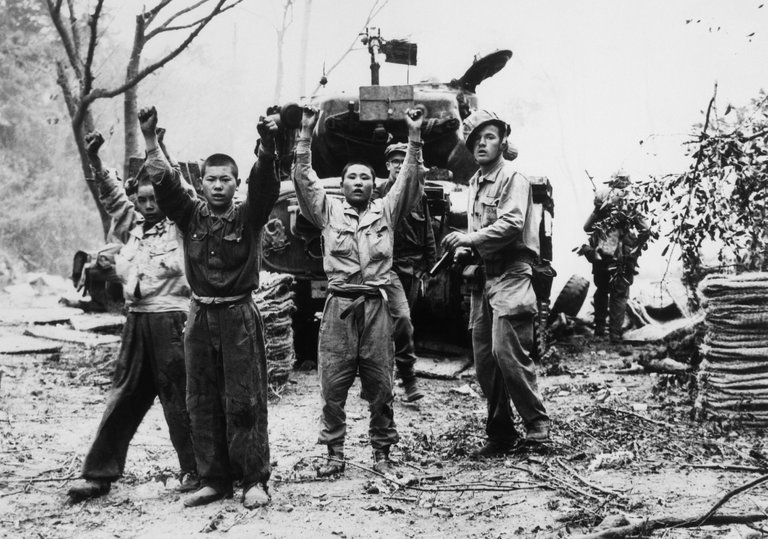
"Turks fighting on the most difficult conditions"
British Defense Secretary E. Shinwell also admitted that the Turkish soldiers in the House of Commons had fought on power conditions and said that "the Turkish Brigade in Korea fought under the most difficult conditions compared to the other United Nations forces during the last wars,
Three Chinese
The Battle of Kumyangjangni between 25-27 January 1951 was also very bloody. Following the war that resulted in the success of the Turkish Brigade, American Infantry Lieutenant Colonel Blair of the Second World War veterans wrote in Ordu Newspaper:
"The fighting of the Turks was the bloodiest of the battles I saw, the fighting was very violent, the Chinese were very well equipped with rifle bombs, various automatic weapons and mortars, food and ammunition were abundant, their resistance to death as well as their disciplines showed good. It has resulted. "
A big bloody spot
The Korean War ended on July 27, 1953 with a huge bloody point:
According to official records, the loss of the UN Army in Korea had found 500,000 people, 94 dead. A total of 1.5 million South Korean civilians were killed in the devastated Korean country.
Lost bilance in Turkish Brigades
According to the publication of the History of General Staff Warfare in the Battle of the Turkish Armed Forces in the Korean War, the missing balance of the Turkish brigades was as follows:
Brigade:
Martyrs: 25 officers, 16 petty officers, 369 men
Casualties: 46 officers, 38 wounded petty officers, 1,059 men
Disputants: 3 officers, 38 lost petty officers, 171
Prisoners: 4 officers, 3 petty officers, 218 men
Total losses: 1.953Brigade:
Martyrs: 8 officers, 2 petty officers, 111 men
Casualties: 20 officers, 17 petty officers, 463 men
Dodgers: -
Prisoners: -
Total losses: 621Brigade:
Martyrs: 4 officers, 8 petty officers, 178 men
Wounds: 15 officers, 11 petty officers, 478 men
Dodgers: -
Prisoners: 2 officers, 7
Total losses: 703
The total lost biceps of 1, 2 and 3 brigades:
Martyr officer, petty officer, er: 721
Wounded officer, petty officer, er: 2,147
Lost officer, petty officer, er: 175
Prisoner officer, petty officer, er: 234
Total losses: 3.277
If we accept an average of 5 thousand people, we can see that the loss of 3 thousand 277 people in 15 thousand people is 22 percent, which is a big loss in the city that will not be underestimated at all.
If the disgraced people join the martyrs, 896 of the loss of 3 thousand 277 people are martyrs. According to this, martyrs constitute a large number of 27% of the total loss.
Paid with blood cost
while the drive of the Korean War in 1952 had a significant impact in taking Korea to Turkey to NATO, together with Greece.
In the 1950s, a war suddenly started at a remote corner of Asia, and it took three years, dragged many country troops, took some things, brought some things, and it was over.
On July 28, 1953 there was no more war.
Already the state of war was not officially announced; neither by the US nor by other Westerners, nor by China ...
Like war, there was no victory ...
Then there was no peace ...
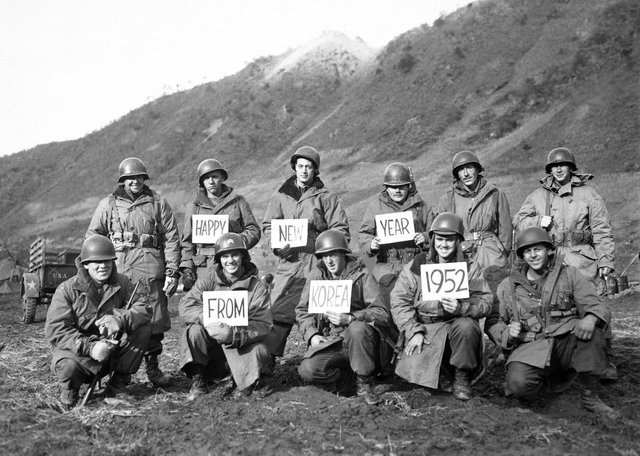
According to the cease-fire agreement, the peace meetings that should start in Geneva within three months did not start anyhow. But nine months later on April 26, 1954 in Turkey is also participating in the war in which representatives of 16 countries, the Soviet Union, Communist China, South and North Korean representatives were able to come together in Geneva. They could have come together for two months. Two months of negotiations failed. Until 1990, when these lines were written, Korea continued to maintain its status with only the ceasefire agreement for 37 years, but it was not peaceful ...
Meanwhile, on September 4, 1953, the prisoners of war began to change after 1.5 months of ceasefire. Between the prisoners of the two sides, they refused to return to their homeland: the United Nations Army had 357 people, 13 thousand 500 troops, 21 of which were Americans. 82 thousand 500 communist tutsun 21 thousand 800 people did not want to return. 234 The Turkish prisoner returned without giving up.
225 of the Turkish prisoners, or 96 percent, were captured in the Kunuri Wars, during the first months of the war, and spent about three years in prison camps.
Last rounds and turns
About three weeks after the fire, the 3rd Turkish Brigade left its place in the 4th Brigade and left Korea entirely.
In this state, the 4th Brigade had not entered the war but was in a disturbed expectation, taking its place on the front. This disturbance was undoubtedly not only in the Turkish Brigade but also in the enemy of the United Nations as well as in the enemy. The guns were silent for now, but nobody knew what would happen tomorrow. Were they fighting again?
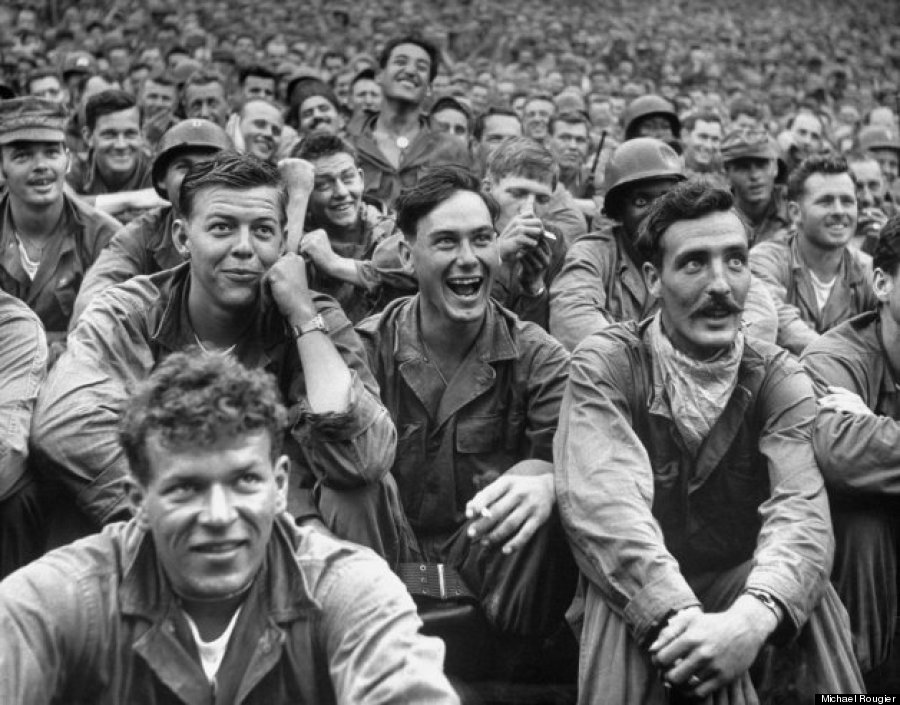
On two sides of a four-kilometer soldier-free space, the two sides were waiting for their eyes ...
And so the months have passed ... The prisoners have been changed ... Peace talks have begun ... The results have not been received ... And the years have passed by adding months, months and winters ...
During that time, until the year 1960, six Turkish brigades went to Korea after the 4th Tugay by changing every year. And after the 10th brigade, a brigade was sent to Korea instead of the brigade. After 1962, the company was downed to a manger. So, once in a while twelve years later, the brigade of 5 thousand people began to represent a manga of 10 people.
Yes, there was a bloody battle that lasted for three years from 1950 to 1953 in a remote country called Korea, thousands of kilometers away from Anatolia, across the big Asian motherland, and "Mehmet" fought over there.
There is now a "Turkish Victory Monument" in Kumyangjangni as a memorial of that blood and gunpowder in Korea and a "Turkish Cemetery" in the United Nations Army Cemetery in Puson.
And in this Turkish martyrdom, there are 721 Turkish martyrs who sleep their eternal sleep as a silent witness of this fight ...
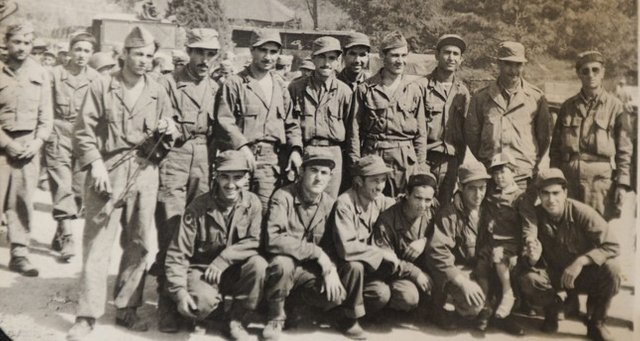
Welcome to steemit @kapaksizkazan best regards hopefully you feel at home here. 😍
thank you very much this is an excellent platform very much love this blog